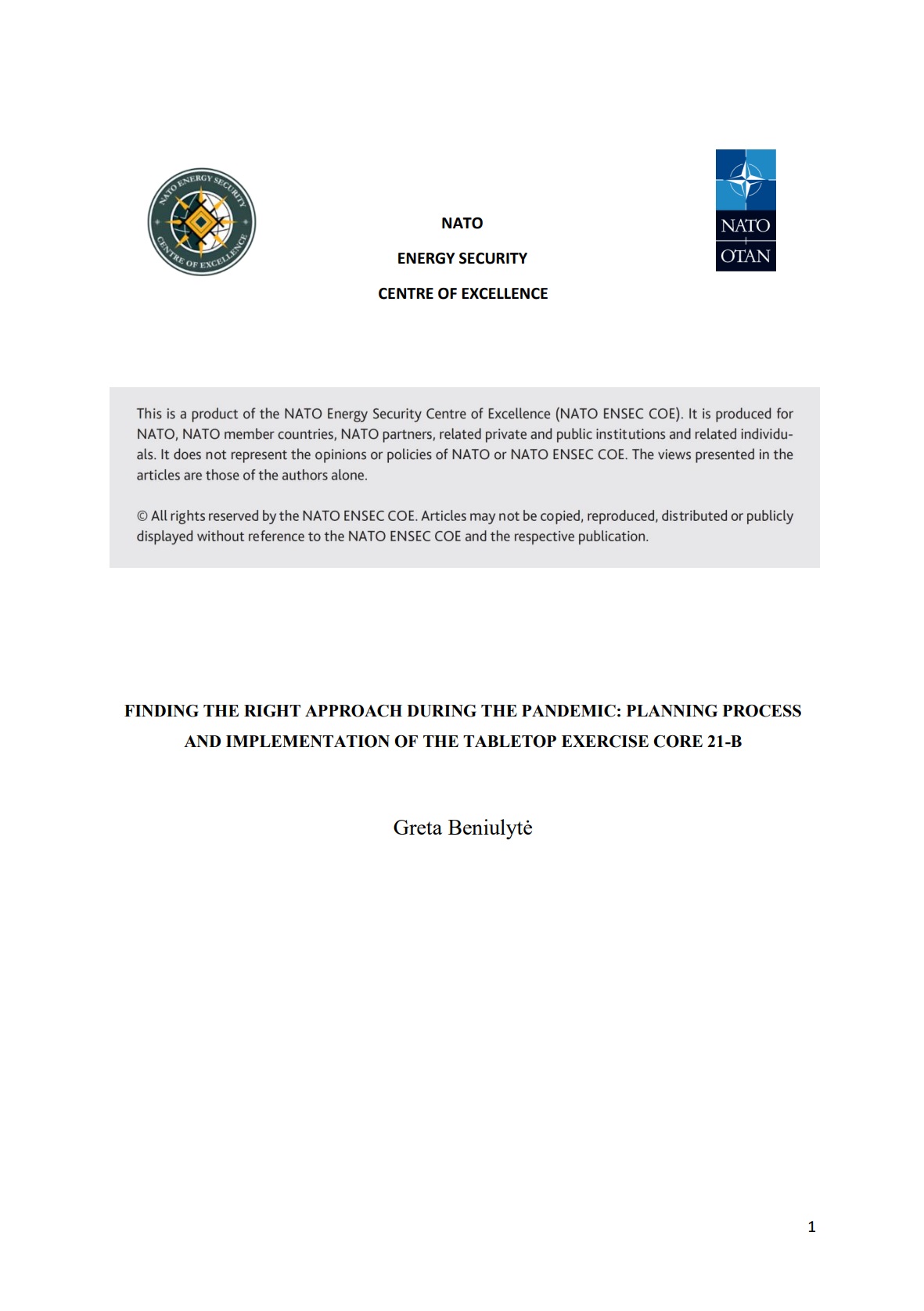
One of the key functions of NATO Energy Security Centre of Excellence (NATO ENSEC COE), of all Centres of Excellence for that matter, is collective and individual training. Four in-person courses in Energy Security discipline were offered by NATO ENSEC COE
Education, Training & Exercise Division (ETED) prior to the pandemic. As the pandemic progressed, two courses moved to virtual space, and two were cancelled in 2020. Another important project co-organized by NATO ENSEC COE and the European Commission Joint Research Centre (JRC) that faced difficulties due to the pandemic is Tabletop Exercise Coherent Resilience 2021 (Baltic Region Electricity Supply Resilience, CORE 21-B) – a key event examined in this article.
The main dilemma caused by the pandemic for the Education, Training & Exercise Division of NATO ENSEC COE was having events run on time by moving them to virtual platforms. This action accepted partial loss of the events’ value and eliminated the further postponing of events until it would be possible to run them live as planned. Another important aspect considered was whether an event, such as Tabletop exercise, can achieve its goals if moved to virtual space. Especially when considering one of the main goals of such exercises is to enhance cooperation. These are all important dimensions that have to be considered regarding the
running of events during the pandemic.
This article will cover the discovered positives and negatives of moving live events to virtual platform since the beginning of the pandemic. The article will provide an insight on future decisions concerning planning events in preparation for Tabletop Exercises such as the Initial Planning Conference (IPC) for CORE 21-B hosted online.